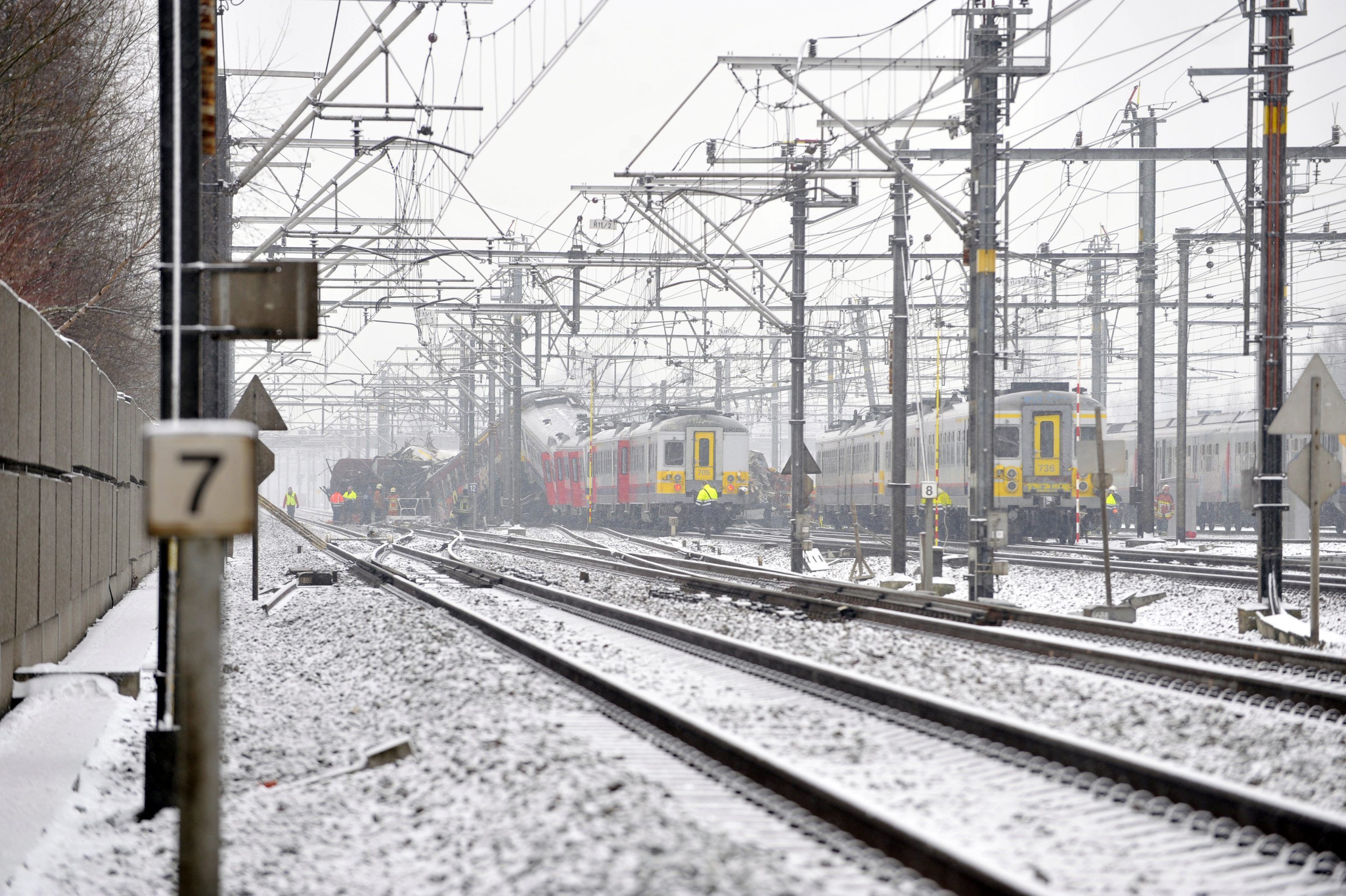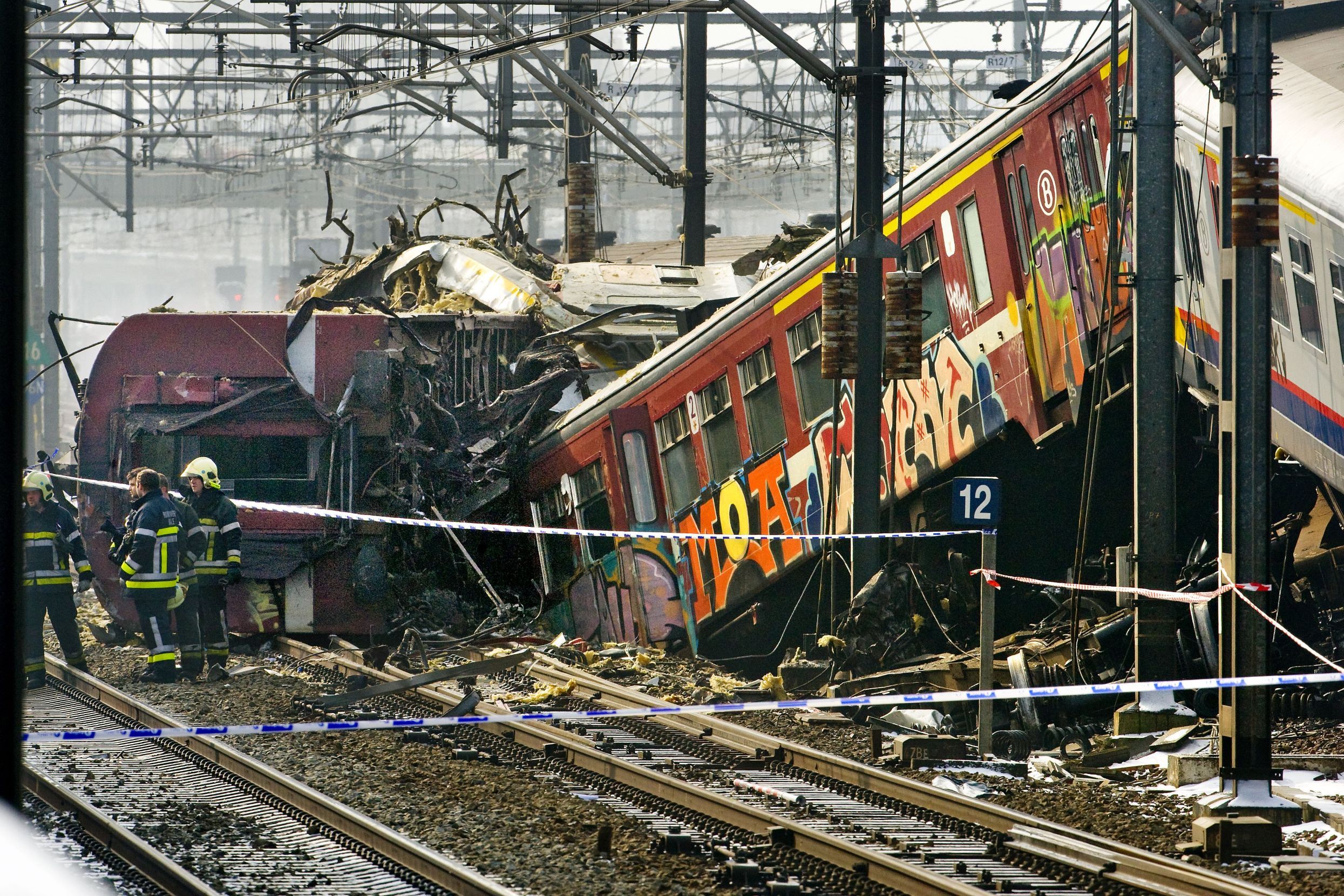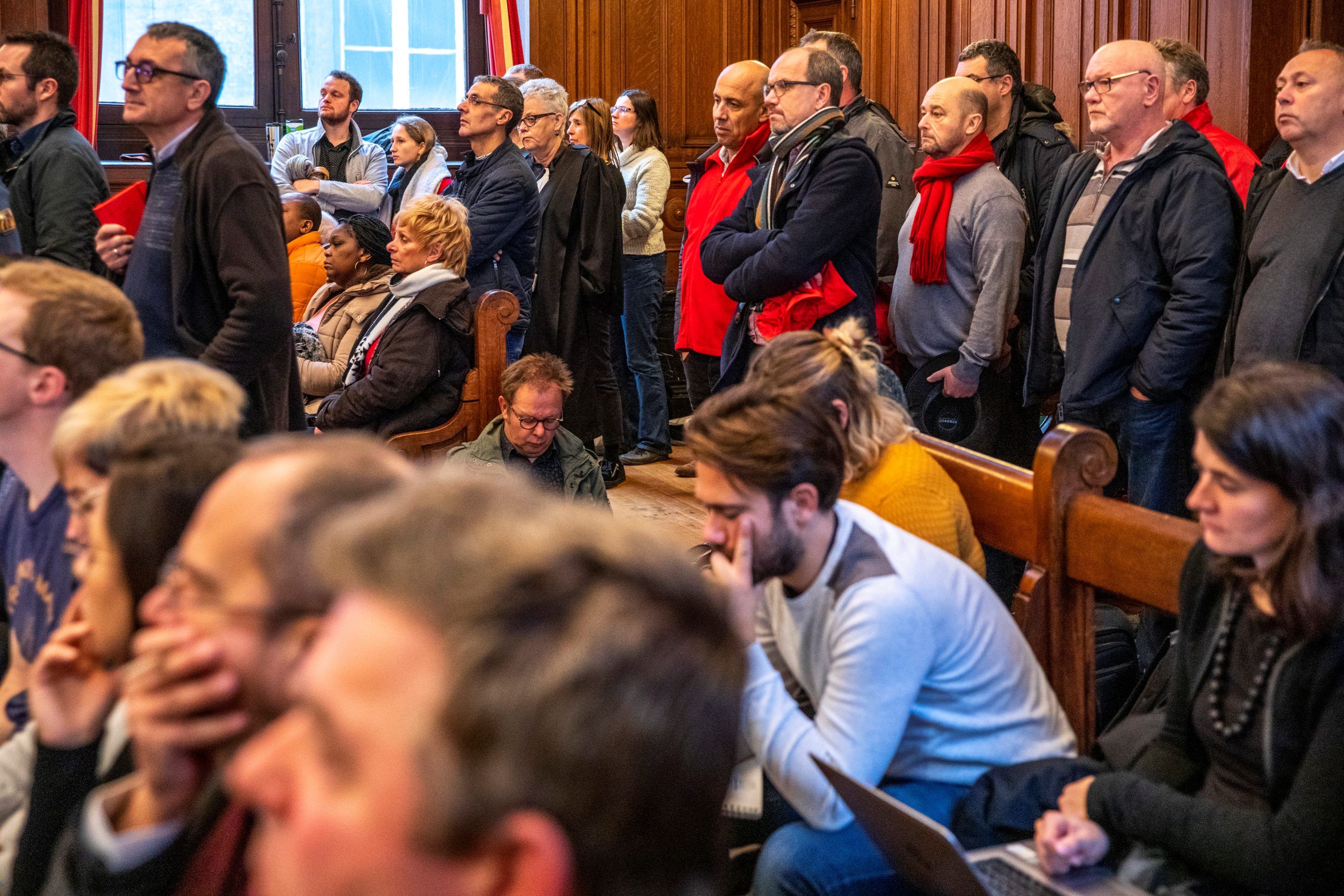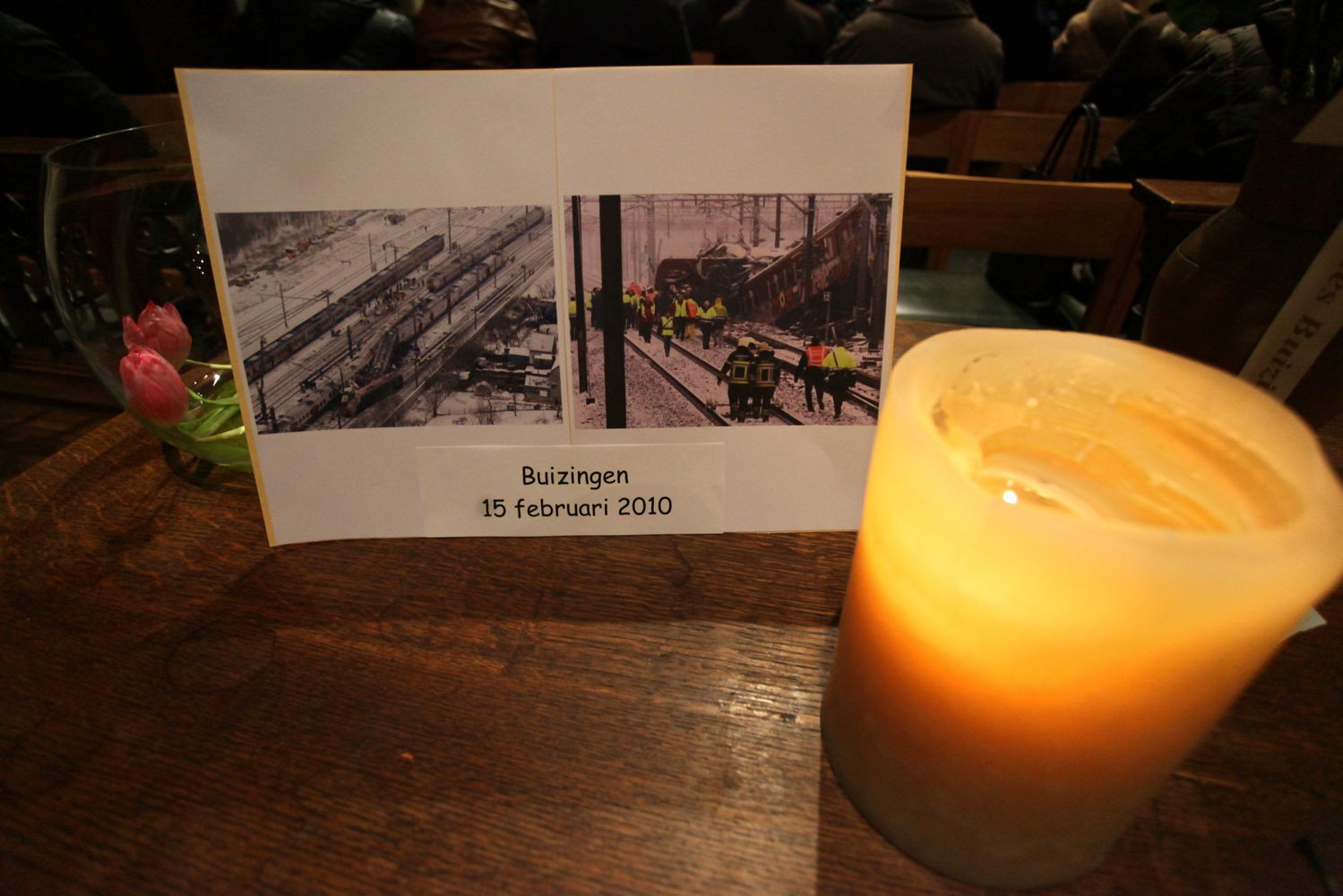Ceremony commemorates victims of one of Belgium's worst rail disasters

A ceremony was held on Saturday in memory of the victims of one of the worst rail disasters in Belgian history. Nineteen people were killed on 15 February 2010 in the crash at Buizingen, 12km southwest of Brussels
On 15 February 2010 at 8.28, a local (L) train from Leuven to Braine-le-Comte collided with an InterCity (IC) train from Quiévrain to Liège-Guillemins. Both rail operator SNCB and network manager Infrabel were found to be partly responsible and were convicted and fined following a trial nearly 10 years later.
The tragedy occurred on line 96, one of the main access routes to Brussels-Midi station, at the height of the morning rush hour.
The IC train was diverted by a switch to a track where the L train was travelling in the opposite direction. The driver of the L train was reported to have ignored a red light, which is normally activated to signal danger on the track, something he has always denied.
Upon colliding, the first two carriages of the L train were propelled over the top of the first carriage of the IC train. A third train on the same line towards Brussels-Midi saw the accident in time to apply the emergency brake and call for help.
Fifteen men, three women and an unborn baby died and more than 160 people were injured. The investigation took several years, before a trial was held in 2019.

The court ultimately recognised the SNCB, in charge of rolling stock, and Infrabel, manager of the railway network, as primarily responsible. The driver accepted partial responsibility, but no penalty was imposed on him.
"It was very hard," said Anita Mahy, who was on one of the trains involved in the crash and now chairs an association advocating for greater safety on the railways.
"We realise that the railways are less safe than we might think," she said. "We obtained a good result in court, which is positive. This commemoration is also positive: the victims should not have died in vain."
The companies involved have since continued their efforts to improve safety on the network. More than three-quarters of the track is now equipped with the European ETCS system, which allows the detection of dangers or other trains using beacons on the tracks and rolling stock. Installation is planned across the entire infrastructure by the end of 2025.
Passenger trains are also equipped with the TBL1+ emergency braking system, which had already been announced before the disaster, but whose implementation was accelerated after the tragedy.
Training has been ordered for SNCB and Infrabel personnel so that employees feel able to discuss mistakes with their superiors, and drivers are given an additional day of training on signal violations.

Since the introduction of these measures, the number of signal violations has decreased year on year, falling to 51 trains in 2024, the lowest total since 2010, when 110 were recorded. The number of times signals were violated at potential danger – such as when a train is travelling on another track – fell from 51 to 14 over the same period.
Friends and relatives of the 19 people who died gather every year in the town square of Buizingen in front of the memorial bearing their names.
"The accident had a huge impact on the families and friends of the victims, as well as on everyone else involved," said Patricia Vanden Eynde, the mother of one of the victims.
"It has been a long and emotional struggle, during which we have often felt misunderstood and disrespected."
#FlandersNewsService | © BELGA PHOTO ERIC VIDAL / BELGA VIDEO INE GILLIS
Related news



